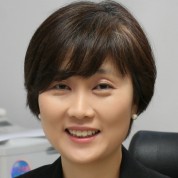PS3.4
Understanding the Role of Gender and Sexuality in Global Health Inequalities: Addressing Biases and Promoting Inclusivity
26
Jan
Gender Justice in global health has been an aim for decades. Many United Nations’ meeting have examined the ways in which gender equity can be achieved and have thus far resulted in some progress. Despite this many such injustices arising from gender discrimination remain dominant in health and determine health outcomes of millions of people across the globe. The Commission on the Social Determinants of Health which was advised by a Gender and Health Knowledge Network concluded that “Gender inequities are unfair and are pervasive in all societies. Gender biases in power, resources, entitlements, norms, and values and in the organization of services are unfair. They are also ineffective and inefficient. Gender inequities damage the health of millions of girls and women” (WGEKN, 2007). The CSDH went on to say that by supporting gender equity, governments, donors, international organizations, and civil society can improve the lives of millions of girls and women and their families. Although always considered an issue limited to women, gender and gender inequity have implications for men who may remain confined by very narrow and restricted definitions of masculinity which limit the roles and actions of men. Around the world, men have shorter life expectancies and show larger trends in occupational health hazards than women. In part risky health-harming behaviours such as smoking and alcoholism all of which are linked to the notion of masculine gender role performance. Men’s mental health also remains an issue on the fringes as social expectations from men to be “strong” and less expressive limit them from seeking mental healthcare. In the past decade, there has been an increased awareness of the health impact of rigidly defined definitions that classify some types of gender as normal and others as abnormal. These definitions are very culturally bound and so global health is particularly prone to imposing one society’s values on another’s which is problematic for health and health outcomes. Similar issues arise in the area of sexuality where there is a long history of certain sexual behaviours and orientations (i.e. who a person is sexually attracted to), being classified as ‘deviant’ or illegal.
Gender power relations result in differential access to and control over health resources within and outside families; unequal divisions of labour and benefits in formal, informal, and home-based parts of the healthcare system and the formal health system. The COVID-19 pandemic laid bare the inequities of the gendered care economy in which low-paid care workers, who are almost always women were exposed to COVID-19 and so suffered high rates of infection and death. Women, girls, and gender non-conforming/gender diverse persons experienced deepened inequities in access to COVID-19 health information, care, therapeutic products and services, and gross negligence of reproductive and sexual health care.
“The development sector traditionally framed gender to mean women and girls, and saw human sexuality as linked to issues such as ‘population control’, or HIV prevention. Moving away from such paradigms requires understanding gender and sexuality as being integral to everyone’s’ human rights. But aid programmes are often used as a tool in the game of geo-politics. For example, global health the values and norms in donor countries may restrict the type of reproductive health services that are funded to the great detriment of women. This is an example of the ongoing impacts of colonisation.
The Lancet University of Oslo’s Commission on Global Governance for Health: ‘The Political Origins of Health Inequity’ asserted that what is required to motivate change is an explicitly political and moral perspective on health and equity. The report states:
Justice is a matter of life and death. It affects the way people live, their consequent chance of illness, and their risk of premature death. We watch in wonder as life expectancy and good health continue to increase in parts of the world and in alarm as they fail to improve in others. (p.30)
This report maintains that power disparities and dynamics in many policy areas that affect health are very evident. These include “economic crises and austerity measures, knowledge and intellectual property, foreign investment treaties, food security, transnational corporate activity, irregular migration, and violent conflict”. Our current and past geo-political world order with its large power differentials has seen massive inequities grow between countries. Gender equity is part of the story of why these have occurred and grown. Gender continues to get mired within these historical geopolitical power structures and generates differential outcomes for health for people who are located at different locations vis a vis gender, race, class, caste, religion, ethnicity, sexuality and many others. It is important to understand how sexuality is linked to power and the sexual norms that seek to define and control sexuality, is reflective of power inequalities and also reproduce and reinforce these power inequalities.
A gender-just world would mean equity in access to the determinants of health and well-being including access to health services, removal of discriminatory policies which deny universal human rights including rights to health and wellbeing, and the creation of societies which are inclusive of all genders and sexualities.
- To examine the role of gender and sexuality in contributing to global health inequalities
- To examine the biases in relation to and differences in definitions of gender, sex and sexuality in global health
- To determine how inclusivity can be fostered
SPEAKERS
Biosketch
Allysha Maragh-Bass
Lucy Kombe
Melanie Etti
Minah Kang
Muhammad Naveed Noor
Naomi Tulay Solanke







